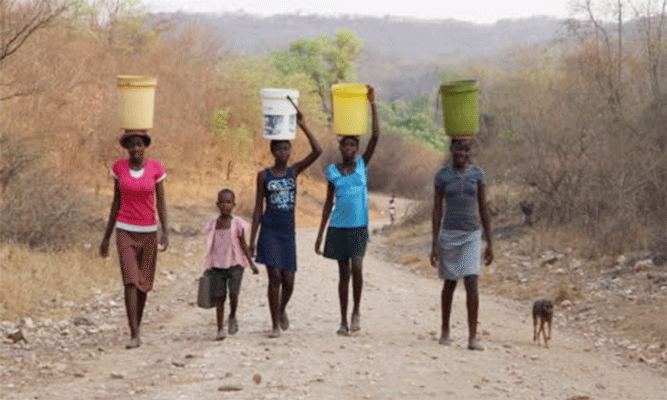Source: Lockdown period: Women, girls resort to rags – The Standard
By Kennedy Nyavaya
A significant number of girls and young women in rural areas have turned to the use of unhygienic sanitary wear due to the indefinite stoppage to their life-sustaining projects owing to coronavirus-induced lockdown, it has emerged.
On March 30, the government put in place a nationwide lockdown that saw the closure of informal markets and closure of the country’s borders.
With food and other basic needs competing for the depleted budgets of many, there has been a spike in period poverty resulting in more women using rags among other unsafe alternatives.
“Getting sanitary pads is a big problem for us as girls so we end up using rags, which are uncomfortable given the fact that we are not used to it,” said Linda Kamupira (22), a college student from Mudzi.
Residing near Nyamapanda town, Linda detailed how closure of the border with Mozambique had seen many women dependent on buying and selling goods on either side are losing their income for two months now.
“We normally get daily passes to cross into Mozambique to buy and sell goods, but now with this lockdown the border has been closed, so most of us no longer have sources of income,” she said.
By definition, period poverty arises from lack of access to sanitary products, menstrual hygiene education, toilets, hand washing facilities, and/or, waste management.
In most of rural Zimbabwe the price is either currently too high owing to supply disruptions, or nearby shops, which they are restricted to because of lockdown, are out of stock.
It should be government’s duty to put an end to this and ensure women and girls fully enjoy access to health and dignity, says Youth Initiatives for Community Development (YICD) programmes manager Kudakwashe Makanda.
“We have realised that the issue of sexual reproductive health rights, especially with the exorbitant pricing of sanitary wear, has not been getting the attention it deserves especially from our policymakers because up to now we should have seen action,” said Makanda.
“It is the responsibility of the government to find means and ways that make it easier for citizens to fully realise their rights.”
In a statement to mark Menstrual Hygiene Day last Thursday, local Unicef representative Laylee Moshiri said the organisation’s recent research established that disposable sanitary pads as the most commonly used sanitary material with slightly higher use in urban areas at 94.7% than rural areas’ 85%.
Moshiri said gaps in ability to access sanitary products had seen a third of rural school children missing school, with some resorting to unconventional means.
“The cost of sanitary materials is currently prohibitive with more than 12% of the rural girls relying on unacceptable sanitary materials such as old cloth or towel,” she said.
“The study findings noted that menstruating girls face stigma leading to loss of confidence and self-esteem, rooted in discriminatory traditional, cultural and religious practices while boys have little appreciation of menstruation.”
Over 800 million women and girls are said to menstruate on any given day, with the bulk of those from underprivileged communities facing stigma, discrimination and exposure to health hazards as a result of mismanaged menstrual hygiene.
Lack of access to proper sanitary wear has added to the woes associated with the biological process, leaving those who use means other than disposable pads prone to health complications like severe infections, blisters and bad odour among others.
“We do not feel comfortable being around people at home because some view us as unhygienic,” says Rosemary Mabvuta (19) from Mutoko’s Nyamutsahuni area.
According to her, most of the young women and girls are either unaware or incapable of washing and ironing to kills germs on the rags before use, which
heightens the risk associated with improper sanitary wear.
With this year’s Menstrual Hygiene Day themed “It’s time for action”, the country should review its efforts towards alleviating the growing period poverty during the Covid-19 pandemic.

COMMENTS